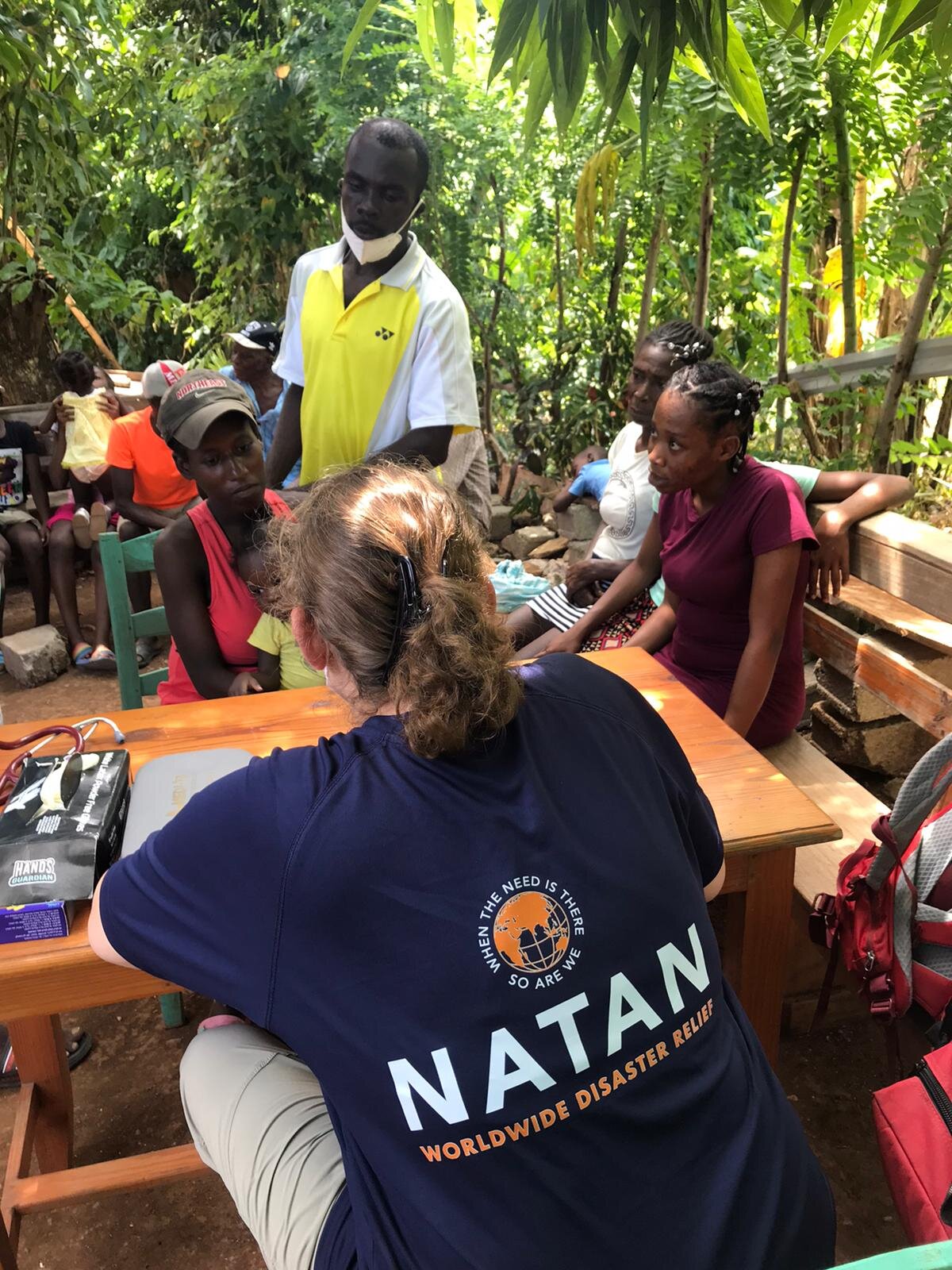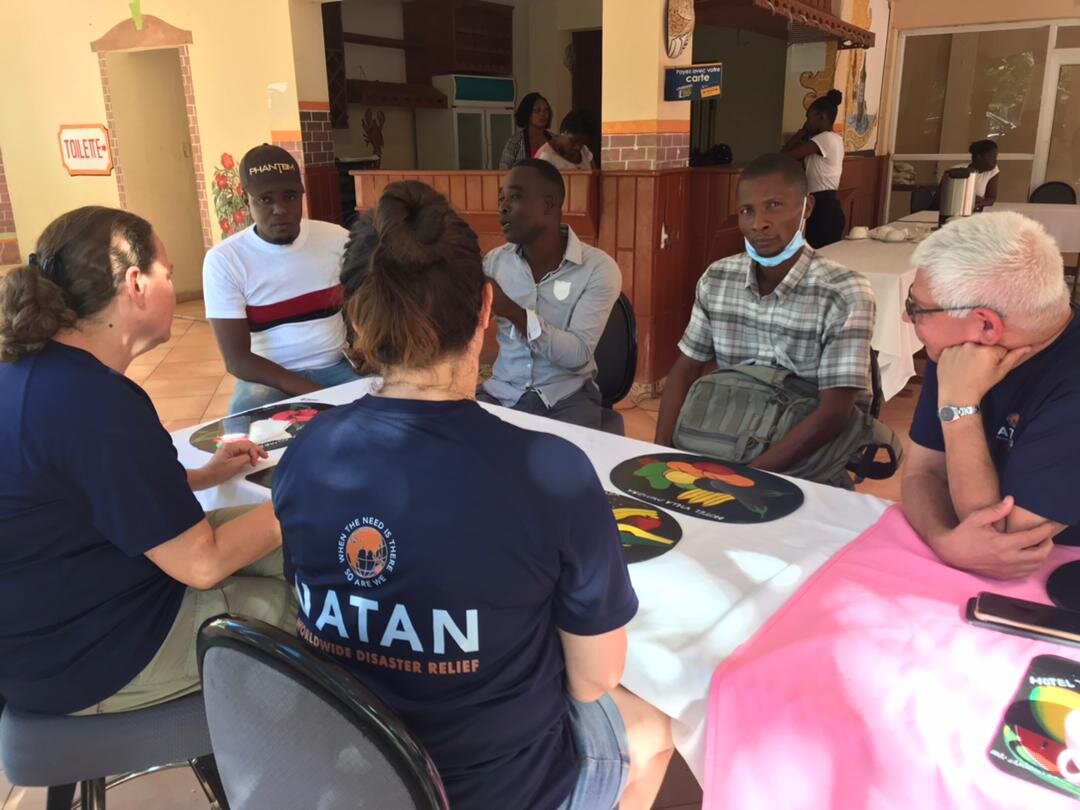9/17/21
FIELD DIARY BY DR. SHARON KRONFELD SHAUL currently on site in Haiti
September 2021 – NATAN and Operation Blessing Earthquake Relief Mission, Haiti
Wednesday, September 15, 2021
Deploying an outpatient clinic requires advance preparation.
The first step is to make contact with local key people. With their help we locate a community (village or town) that needs help.
The locals organize the area prior to our arrival: locating a shady place, laying out tables and chairs and especially announcing the expected date of our arrival.

Haiti arose as a result of the uprising and revolt of African slaves against the ruling French.
The language in Haiti is Creole, a hybrid language derived from French and African languages.
The educated locals speak French (this is the place to thank my French teacher from the Alliance School), a few speak English.
Most of the villagers do not speak French and communication with them requires the help of an interpreter.

On the eve of our arrival, we met with a pastor and a social activist lawyer in the area. We consulted the doctor from the local staff of our wonderful partner organization, Operation Blessing. Together we built a plan for the coming days.
We went out with the vehicle for an orientation tour during which we were asked by local partners to open a small clinic in the village of Marceline. A small table and chairs were brought from one of the houses and within a few minutes people gathered around us for treatment.
Some suffered limb injuries that were treated immediately after the hospital injury.
We changed bandages and treated the open wounds locally.
Among other things, we treated Madeline, 24, who was badly injured in the earthquake. She needed surgery due to an abdominal injury and internal bleeding. More than 3 weeks have passed since the operation, and she says she has no money to go to the hospital for an examination and removal of the staples.
We treated the incision wound and removed the staples. Madeleine overcame local pain and was treated with painkillers.
The name “Haiti” in the local language means “mountain country”.
The earthquake that occurred last month mainly affected the mountain villages.
After consulting with our local partner we chose to head out towards the mountains.
The lawyer, Michel, accompanied us to the village of La Prete about two hours from the place we are staying. It was a difficult ride, on a road badly damaged and strewn with debris from the earthquake.
Around the village there are other villages located on higher ground, but they are inaccessible by car because of the earthquake damage. These villages can only be reached by motorbike or on foot.
Michelle updated his people in the villages about our arrival.
When we arrived in the village, several dozen people were waiting for us in the makeshift clinic.
Within minutes we got ready for work:
We set up an admission position where a team member takes patient details, temperature measurement and LED measurement and 2 MD positions.

We treated about 50 patients, ranging in age from one month to 70. The homes of most of the patients were destroyed in the earthquake. Some lost people close to them and some were injured.
Many reported loss of appetite, weight loss and inability to sleep.
Mothers whose breast milk has decreased since the quake reported infant restlessness.

Others have suffered from various infectious diseases, including pneumonia, urinary tract infections and more.
Back home in Israel, Yael and I work together with a full staff of experienced nurses. Many procedures are routinely performed by them. Bandages, injections … Here at the field clinic, it’s just us.

Yesterday we were assisted by a remote team of nurses in Israel – whom we dialed up by mobile phone to talk us through the basic procedures, such as preparing and administering an antibiotic injection for a patient.
We do our best.
